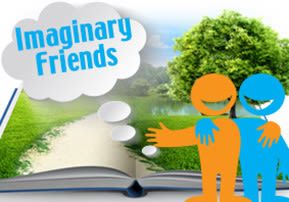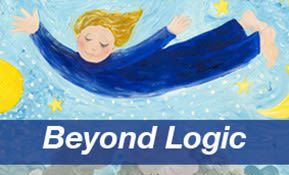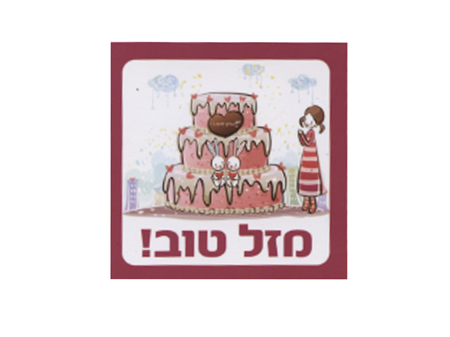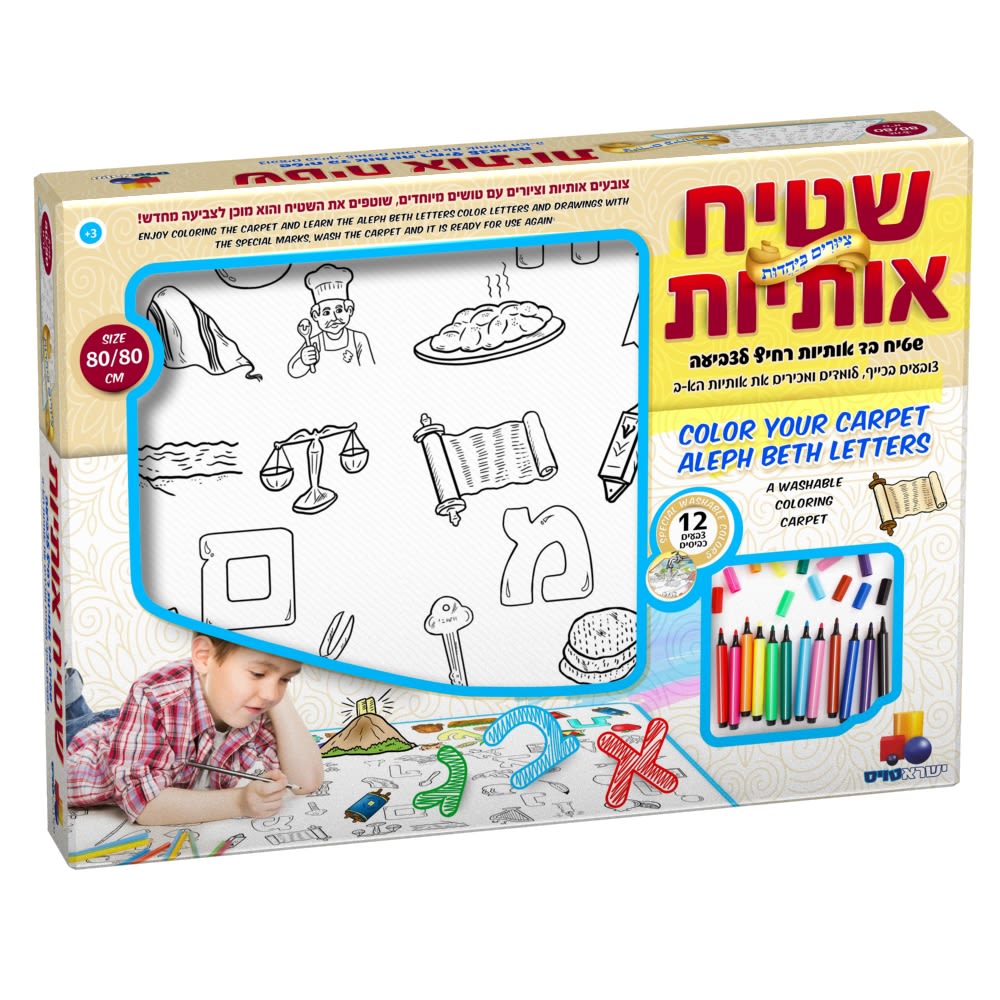
Imaginary Friends
It’s really important for us to learn to recognize and appreciate those times when our imagination is actually more real than the world that we see around us...

Anna was 10 years old when she would waken up to a freezing cold house. Her alcoholic father was out drinking, and her schizophrenic mother was wandering the streets listening to the voices that came to her from the street lamps. There was nothing to eat in the house that wasn’t moldy. Anna’s six year old brother was screaming because roaches were crawling on his face – but Anna remained calm – she had a way of coping – she reached out and held G-d’s hand, and spoke softly to G-d her “imaginary friend.” Later on when Anna developed fainting spells and the doctors couldn’t figure out what was wrong with her, she would hold G-d’s hand while she walked in the street so as to not faint. (See full story)
Another young girl actually adopted the identity of the “imaginary” friend who came to her while she was being viciously and repeatedly raped by her own father. She named this part of herself “Izzy” – who became the personification and preservation of her joyful, alive, pure and creative inner child. Today, four decades later, this person has developed a secure adult self who continues to have many beautiful and inspirational conversations with Izzy and with G-d. (See full story)
Alan, age 6, was also a victim of childhood sexual abuse and was severely neglected by both his parents. His mother was a violent, depressed woman and his father was cold and uninterested in his son. One day while playing by himself, Alan A. met Alan B., an imaginary companion who shared his name but whose last name was that of his grandparents not his parents. When Alan A was with Alan B. he always felt more normal, secure and loved; his own self-image was enhanced simply by having Alan B. as a playmate. Today Alan A. is in his 50’s and was recently “visited” by his imaginary friend during a dream. Their dialogue had a profoundly helpful effect on Alan A. who felt strengthen by the advice and encouragement that he was given by his “friend.”
To the secular mind, these vignettes are fictional experiences that aren’t based in physical reality. As such, these experiences, at best, are considered a form of improvisational role playing in which children who come from dysfunctional families and who have low self-esteem and peer-acceptance try to cope with life. At the other end of the spectrum are those like Pediatrician Benjamin Spock, who said that imaginary friends that continue past the age of four are a form of psycho-pathology that indicates that something is “lacking” in the child.
As people of faith what should we think if we see a child (or an adult) speaking to an “invisible friend”?
In most cases, we should be very happy to see this.
Why?
Because positive kosher thoughts, imagery, imaginative reverie, mental rehearsal and imaginative conversation are all HOLY. Any thoughts, images, memories, conversations (whether “real” or “imagined”) that help us to feel better and adapt better to situations are coming from G-d – and what could be wrong with that? Rabbi Nachman of Breslev what’s referring exactly to situations like these when he wrote: “Your emuna is in your imagination.” (Likutei Moharan, Part 2, Lesson 8)
The children that I mentioned above were able to use their holy imagination to cope with terrible adversity and became mature and responsible adults. Each one somehow “found” the strength to survive and grow into adulthood with a strong sense of purpose and faith. As children though, when they were being severely tested, none of them had the advantage of therapy, medication, normal parenting or a religious upbringing. Let’s try to remember this the next time the babysitter shows up late, or your bank account does a nose dive, or your housecleaner does a messy job on the kitchen floor.
Rabbi Arush says that everybody possesses all of the emuna that they need but need to be taught how to bring it out. We adults can learn much from the way our children use their minds. That’s one of the reason’s G-d gave you children! Children’s minds are more active and creative than ours are, and it’s our holy creative imagination (our emuna) that we need more than anything else to find G-d’s goodness and mercy in this world of darkness. King David said: “Your Faith is in the night.” It’s as though, in today’s world we are living in a dark room and only by groping and making an effort to find the light switch are we able to find G-d who is “hiding” in the darkness. It takes a great amount of thinking to imagine G-d in our day to day lives and to find our points of goodness and those of others who don’t always seem to be behaving very well.
I wish I would hear about more adults who speak with imaginary friends; who converse with relatives alive and past (who are not physically present); who speak with tzadikkim (righteous people) in this world and the next – why? Because since G-d is good, all forms of speaking to the good aspects of people, memories, reveries, teachers, parents, grandparents etc., are all like speaking to G-d himself. Any time that we speak about faith though any of these channels it’s a holy thing to do. Since Rebbe Nachman equates emuna with prayer, Rabbi Arush assures you that just by speaking about emuna in any context you are considered to be praying. (“I am Hashem Your Healer,” p. 20, Hebrew version)
From the vantage point of the soul, whatever it imagines is Holy; and since what is holy is not bound to time and space, it doesn’t matter from where or when in time an imaginary event comes from – for the soul of that person the imaginary event is taking place NOW. This type of emuna-based imagery conditioning has become the basis of a very promising new method of physical and emotional healing. (see the following examples: Bert and the Beast ; Flipping the Pain; Daniel; Sheila’s Bridge; Hooked on Lust; Follow the Dots; Dual Process Thinking; Escape from the Box; I Shall Be; Magic Pads; SWAP for Emuna)
In summary, we need to teach ourselves and our kids that our kosher imagination is a real and powerful way to connect with our emuna and with G-d. For this reason, it’s really important for us to learn to recognize and appreciate those times when our imagination is actually more real than the world that we see around us. Of course, everything in moderation.











8/11/2014
Absolutely beautiful.
8/11/2014